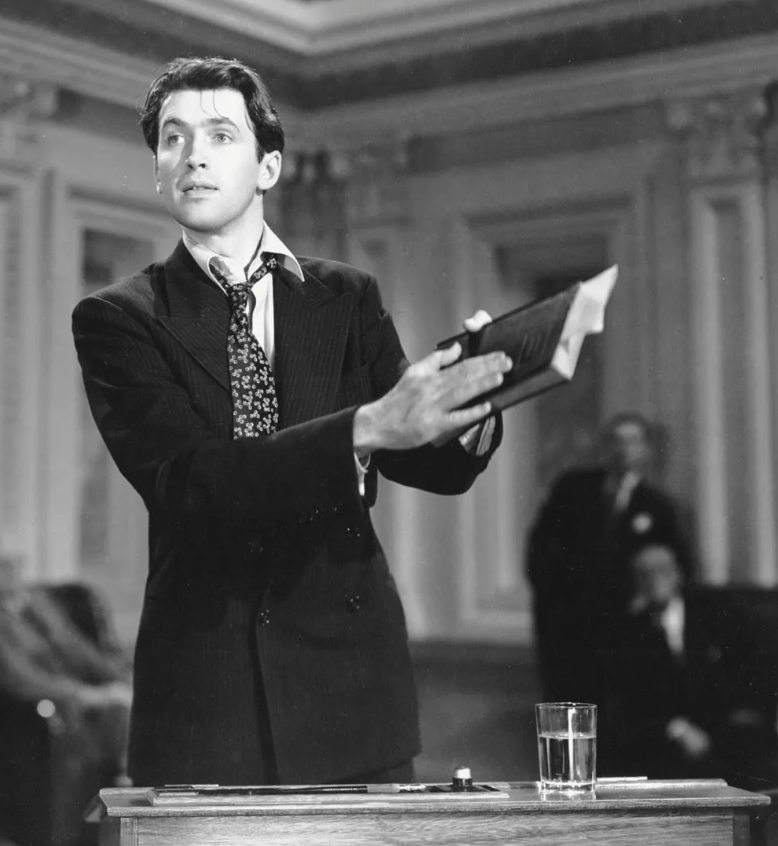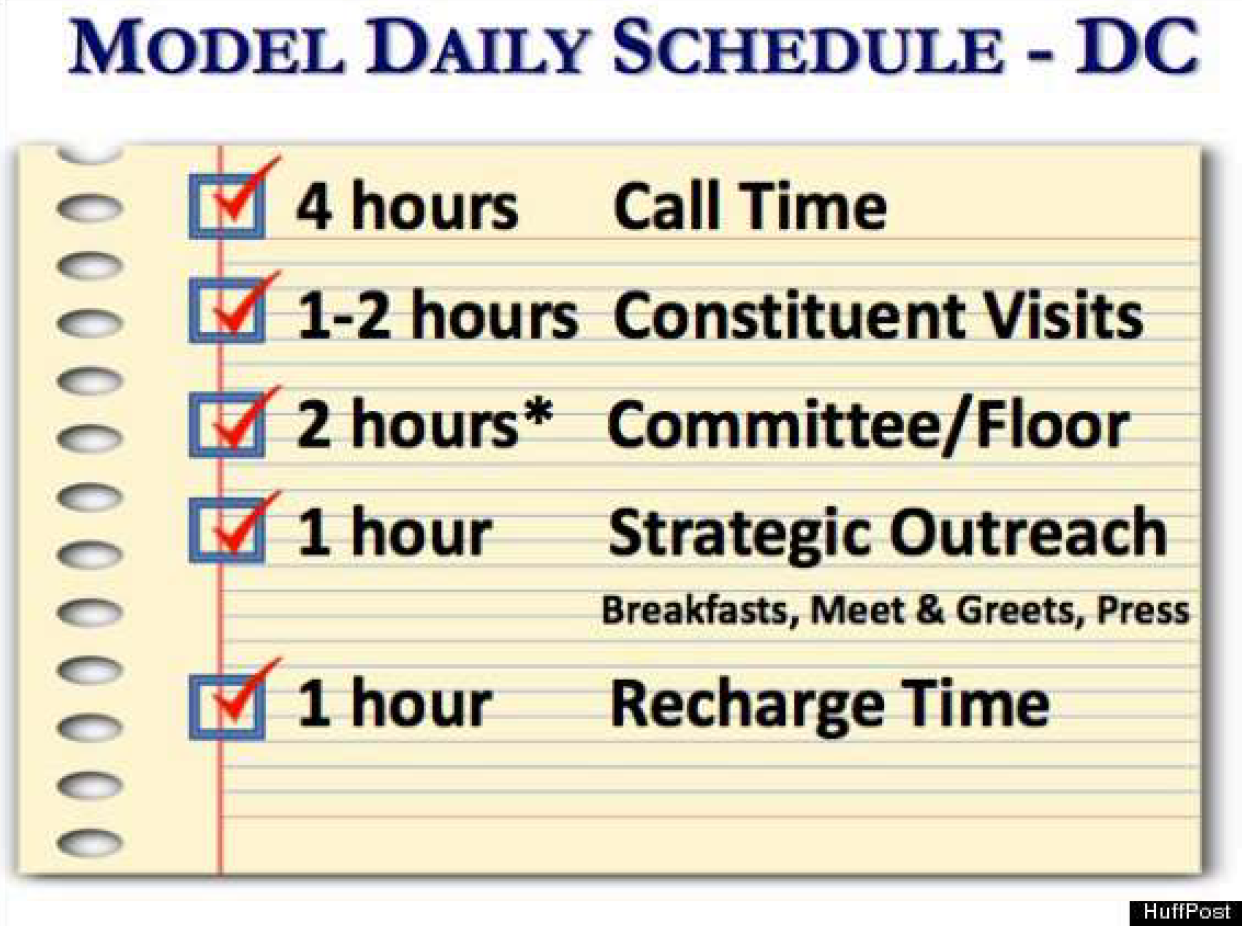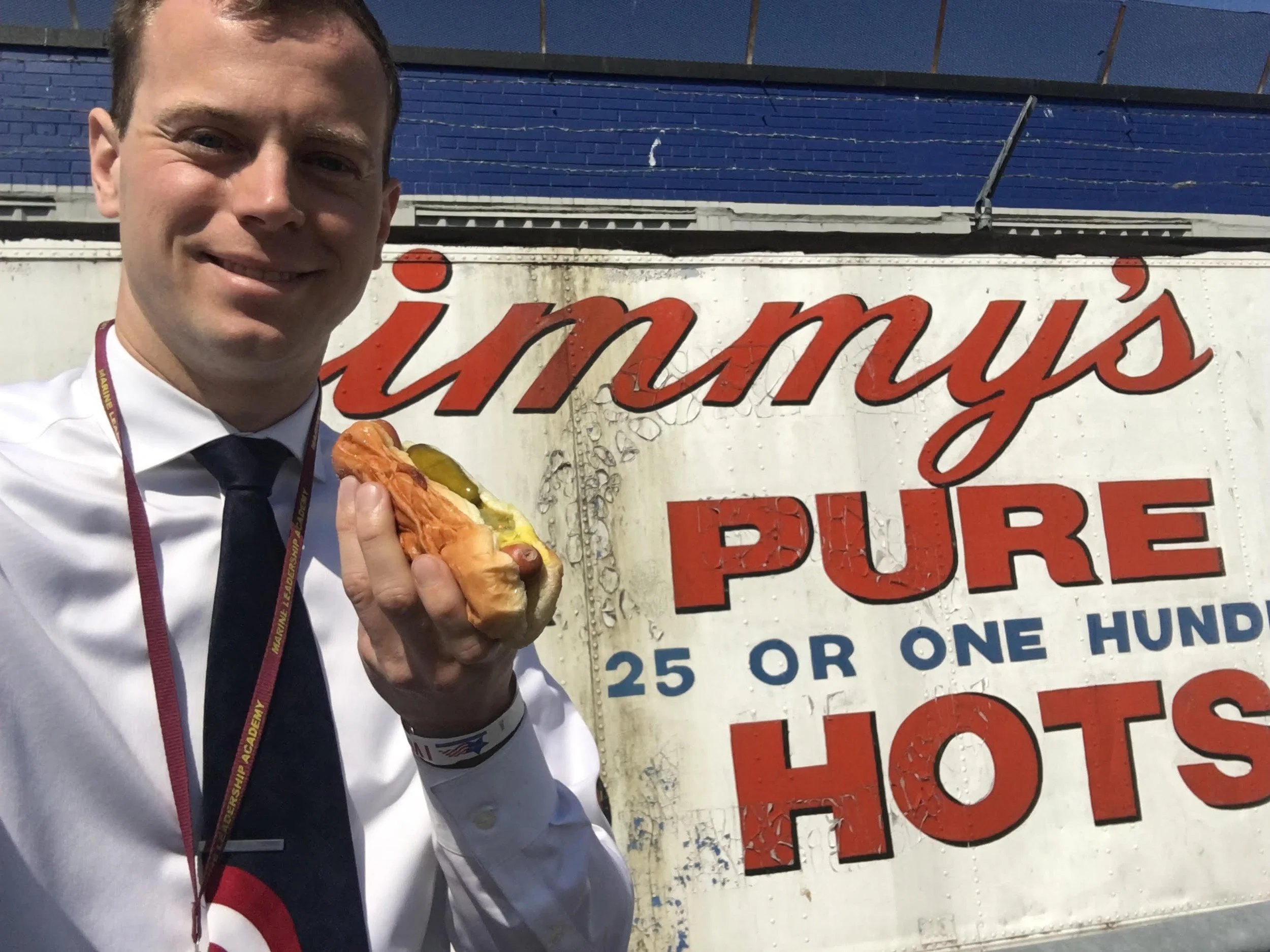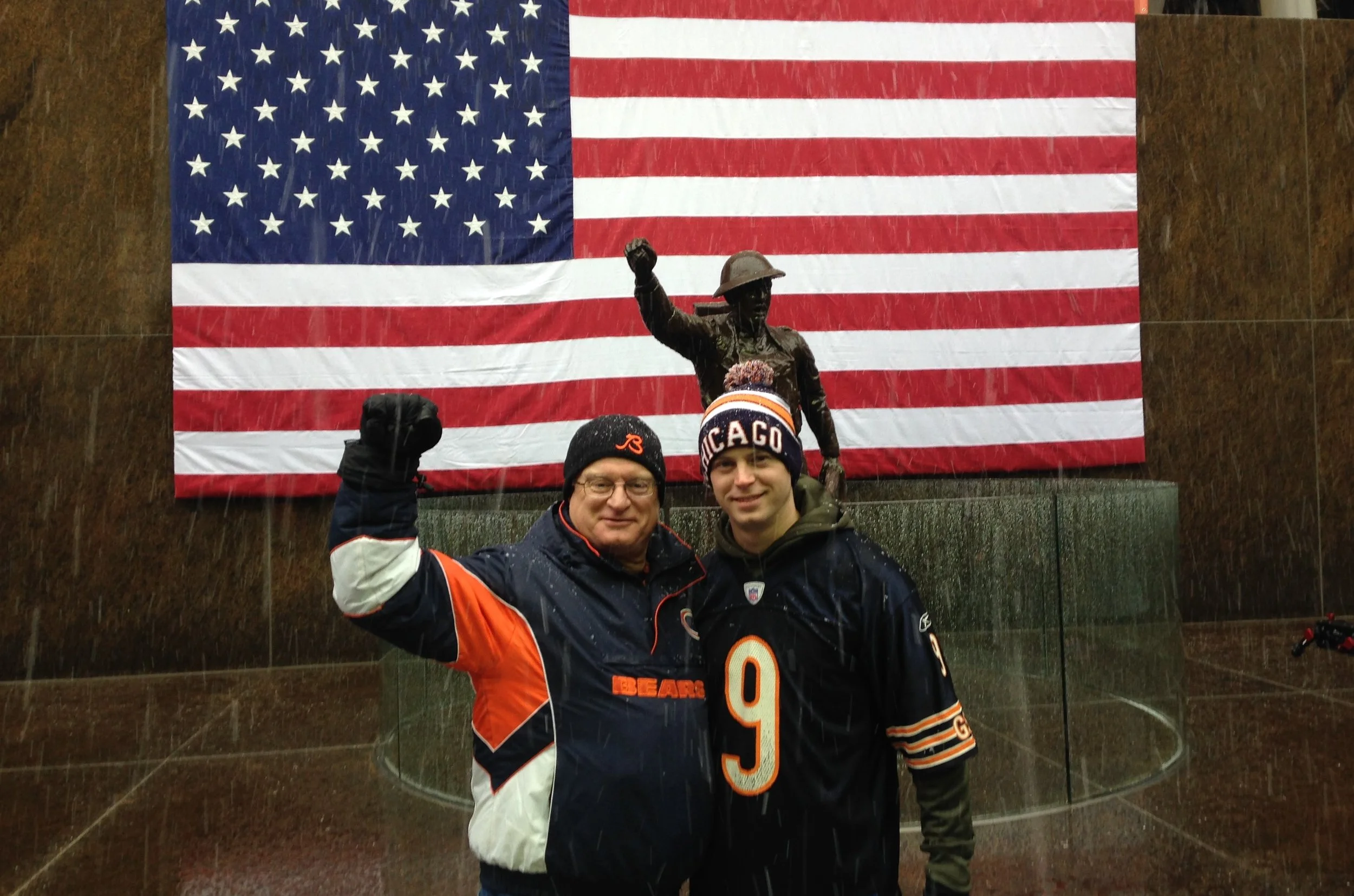The only causes worth
fighting for are lost causes
In the beginning of Frank Capra’s 1939 Mr. Smith Goes to Washington, the newly appointed Senator Jeff Smith, an idealist Boy Scout leader with no political experience, recalls how his father used to say, “The only causes worth fighting for are the lost causes.” When his idealism clashed with the corrupt political realities of the U.S. Senate, Mr. Smith refused to buckle. He refused to concede his faith in the American democracy that he had taught to his Boy Scouts. When it mattered most, he reminded his fellow Senators why they went to the Senate in the first place. Idealism is what our country needs most right now—the Senate could use a Mr. Smith, someone to remind the long-time incumbents why they went there in the first place. I am not Mr. Smith. But I am Mr. Ryan, an idealist former public-school teacher with no political experience. And because I refuse to concede my faith in the American democracy that I taught to my students, I am announcing my candidacy as Democratic nominee for United States Senator from Illinois.
Many will look at this campaign and see a lost cause. They may look at me and ask, “What have you done?” And I will tell them: I have never won an election or introduced any bills; I have not made any speeches; I have never campaigned, nor have I ever raised money. But I have worked for the working class—I have taught their children, and I served alongside them in Afghanistan and elsewhere overseas. I have toiled on the front lines of income inequality in Chicago Public Schools. And I know, on any given day, a single teacher can make a greater contribution to fighting that inequality than any Member of Congress. What I have done is not measured in campaign contributions, bills introduced, or elections won. What I have done is measured by the impressions I have made on my students and the Marines and Sailors I have led. I may not have political experience, but Congress has enough of that. What Congress needs is more working-class experience; Congress needs a Mr. Smith.
The story begins
As I started down this journey, I learned much about the political-industrial-complex of the Democratic Party. I first reached out to a non-profit that helps elect veterans. This led to several conversations with Democratic-insiders, political consultants, a labor boss, donors, and a few Members of Congress. In each conversation, the first question was always the same: how much money can you raise? The director of the non-profit said I would make an excellent Senator, but I need $15 million to be a viable candidate. No one seemed to care what I believed or what I sought to do. One Member of Congress told me she spends one out of every three minutes fundraising. And she is not even the most rapacious of the professional fundraisers on Capitol Hill. Is it any wonder that Democrats, who spend around half of their working hours appealing to the wealthy for donations, became out of touch with the working class?
Each consecutive conversation further discouraged me. Everything revolved around fundraising, and none of them seemed to see money as a problem. Yet the influence of money clearly distorts our democratic process. On one end, money deters working and middle class people from running for office independent of wealthy supporters. On the other end, it allows billionaires like Elon Musk to use hundreds of millions of dollars to buy access, influence, and control of our government. And on top of it all, money does not even guarantee success. Obviously, some money is necessary to pay for campaign staff and operations. But peaking behind the curtain, I learned that around 70-80% of campaign money goes towards paid media—those ads we all love. But the Kamala Harris camp outspent Donald Trump’s supporters and still lost. My $5 donation to “save democracy” clearly did not work. So, why do Democrats keep focusing on donors instead of voters?
Slide from a presentation given to new Democratic Members of Congress to explain the Democratic Party’s expectation that they spend at least 4 hours a day on “call time” asking people for money
To restore idealism to our democracy
we must remove money from our politics
Learning about this reality disheartened me, but it did not dissuade me. Instead, it further stoked a fire within me. This is not the democracy I taught to my students, and this is not the democracy I volunteered to defend with my life overseas. I refuse to accept that spending millions on paid media matters more than ideas in our democracy. And I will not concede my faith in our democracy until I at least try myself, even if it is a lost cause. I emerged from the political-industrial-complex clear eyed, and my idealist campaign found its practical purpose. To restore idealism to our democracy, we must remove money from our politics.
Nearly every Democrat opposes money in politics. Yet, nothing changes. Democratic incumbents still attend high end dinners and out-of-state fundraising events where wealthy donors exchange thousands of dollars to buy access to those incumbents. Those donors, not the average voter, get to voice their concerns and ideas one-on-one to the people who write our laws. This practice is inherently undemocratic. In 2012, Mr. Durbin noted on an episode of This American Life how Americans would be “shocked—not surprised—shocked, if they knew how much time a U.S. Senator spent raising money.” As long as incumbents devote half of their time to fundraising—to securing their own reelections—we will remain unable to meaningfully address any of the issues facing our society today. Instead of devoting half of their time to fundraising with the rich, Democrats should spend that time with the working class and doing the leg work to turn our liberal agenda into public law.
Captain Ryan in Afghanistan with military working dog Barry
People may say I am not a serious candidate because I have not raised millions of dollars. But would those same people question my devotion to our democracy that led me to urban classrooms and a foreign war? I see that same devotion in the hearts of Americans across the country who work every day to sustain our society and take care of their families and communities. And I know they just want to be heard; to know that they matter in our democracy—I know, because I am one of them. So, to those who would say I am not a serious candidate, I say having millions of dollars does not make you matter in our democracy—rather, your devotion to that democracy is what makes you matter. And I am as serious a candidate as any of the millions of Americans—the teachers, nurses, first responders, veterans, union workers, and all the ordinary people across the country who remain more devoted to our collective future than their own. And I would sooner vote for any one of them before anyone who thinks that having millions of dollars makes them serious or matter more. Because that is who we need in Congress—we need a Congress full of Mr. and Mrs. Smiths. But in order to do that, we need to take money out of politics.
In his 2002 bid for reelection, Mr. Durbin said “the key to campaign finance reform is the cost of television. Until television is available for challengers and incumbents across the United States…[we’re] not going to get to the heart of the problem. The airwaves belong to America—to the taxpayers. And the people who own the network stations must give time… so that we don't have to go out and raise money to get on television. Otherwise, you're going to continue to have this money chase and millions of dollars being spent.” I agree completely. And, Mr. Durbin, we now have an opportunity to take action on those words.
Mr. Ryan on his lunch break in Humboldt Park
My Challenge to Mr Durbin:
Debate Me. Let’s take the money out ourselves
In his 42 years in Congress, Mr. Durbin has never faced a primary challenger as an incumbent. This is due to the longstanding practice of both parties to show deference to incumbents and seniority—this is the same deference that made Democrats unwilling to challenge President Biden in the presidential primary when he was clearly unfit to run for reelection; the same deference that melts the spines of Congressional Republicans as they abdicate their Constitutional responsibilities in prostration to Trump; the same deference that holds off the swarm of political opportunists who lack the temerity to challenge the status quo but would quickly jump at Mr. Durbin’s seat as soon as he announces he is not running. A democracy that defers will wither. Only a democracy that challenges will thrive—where those with the most courage and the best ideas, not those who have been there longest, lead society.
Well, Mr. Durbin, you now have a primary challenger. And together, as fellow Democrats, we can “end the money chase” and provide an example of how campaigns ought to be run. I appeal to your good will and commitment to democracy in offering you the following proposal: As candidates in the Democratic Primary Election for U.S. Senate, we agree to (1) not purchase or use paid media during the primary election, (2) sign a joint-statement with the major networks prohibiting the use of Super PAC spending or any other independent expenditures on paid media intended to influence the election, and (3) hold seven in-person, televised debates in Ottawa, Freeport, Jonesboro, Charleston, Galesburg, Quincy, and Alton—the same towns that hosted the Lincoln-Douglas debates. Additionally, as the incumbent, I ask that you agree to refrain from using your franking privilege during the six months leading up to the primary election.
“I cannot enter the ring on the money basis—first, because, in the main, it is wrong: and secondly, I have not, and cannot get the money.”
-Abraham Lincoln, 1859
Mr. Durbin, accept this proposal, and we can provide the people of Illinois with a model of what our elections ought to look like, what they could look like, if we removed money from politics: elections focused on ideas, not dollars—on voters, not donors. We might not be able to overturn Citizens United in this election; we might not be able to take money of out the general election, but we can take money out of this primary election. We can end the onslaught of TV ads that attempt to brainwash, not inform, the masses. We can spare voters from frustrating emails, texts, letters, and social media ads that attempt to exploit their emotions for campaign contributions. We can end the money chase and restore honest ideas to their rightful place in our elections. Should this be your last campaign, let its legacy be giving idealism a chance—a return to the earnest ideas, thoughtful discussion, and good-willed debates that marked Abraham Lincon’s campaign for this very same Senate seat 167 years ago. And then, even if my campaign loses as Lincoln’s did, it will have been successful. Because we will have shown the American people what our politics could look like, if only we made it so. Mr. Durbin, I appeal to your better angel and devotion to service to give the people of Illinois and this nation, the chance to see something we have all longed to see: something that gives us hope.
When I taught civics in Chicago, I told my students that our democracy allows them to be the change they want to see in the world. And I refuse to give up on that idea. So, regardless of what Mr. Durbin chooses to do—whether he chooses to accept, reject, or ignore my proposal—I will continue this story. I will raise only what I need to canvas the State and connect with the people. In 1858, Abraham Lincoln borrowed $500 (around $17,000 today) from a friend to canvas 4,350 miles of Illinois by train, carriage, and boat for the very same Senate seat that I seek. I will add two slightly modern inventions to my campaign: the internet and a bicycle. To all my fellow Illinoisians who want to see our politics change—regardless of who you voted for in the past—I welcome you to become a part of this story. Join our campaign, participate, and be the change, and together we can make the change.
All things are ready if our minds be so—
Kevin D. Ryan
Democratic Candidate
For United States Senate
”Make no little plans. They have no magic to stir men's blood and probably will not themselves be realized”
-Daniel Burnham
be the change
Interested in being part of the change? Don’t donate, participate. Fill out some the form below and we will let you know how.






